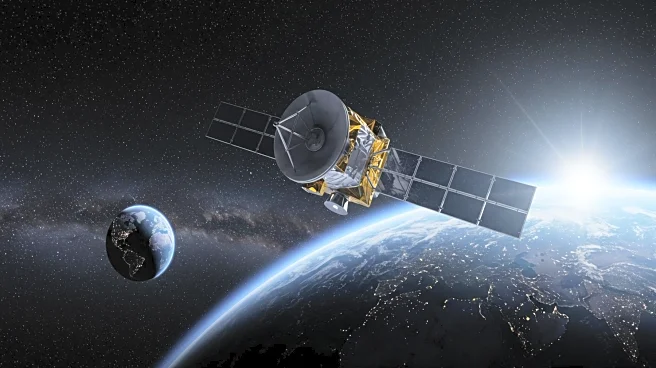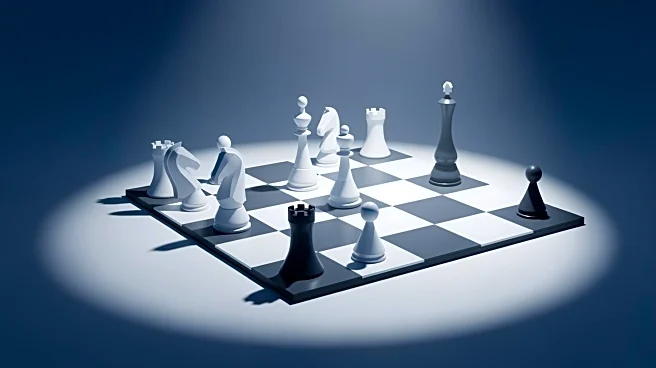What is the story about?
What's Happening?
Russia's state-backed media outlets, RT and Sputnik, have been expanding their international presence, particularly in regions like Africa, the Balkans, the Middle East, Southeast Asia, and Latin America. This expansion comes as Western countries, including the US, UK, Canada, and the EU, have imposed restrictions on these outlets following Russia's invasion of Ukraine in 2022. The US has sanctioned RT executives for allegedly attempting to undermine public trust in American institutions. Despite these restrictions, RT has opened new bureaus and launched services in various languages, while Sputnik has established a newsroom in Ethiopia. This growth coincides with a reduction in Western media presence in some regions due to budget cuts and shifting foreign policy priorities.
Why It's Important?
The expansion of Russian media outlets like RT and Sputnik into regions with reduced Western media presence could significantly influence public opinion and geopolitical dynamics. By filling the void left by Western media, Russia may strengthen its narrative and sway public perception in its favor, particularly in areas with existing anti-Western sentiments. This could undermine Western influence and bolster Russia's geopolitical standing. The situation highlights the strategic importance of media in shaping global narratives and the potential consequences of reduced Western media engagement in key regions.
What's Next?
As Russia continues to expand its media influence, Western countries may need to reassess their media strategies and presence in these regions to counterbalance Russian narratives. This could involve increasing funding for international broadcasting services or developing new digital platforms to reach global audiences. Additionally, countries affected by Russian media expansion may implement regulatory measures to address potential disinformation and maintain media integrity. The ongoing geopolitical tensions between Russia and the West are likely to influence future media strategies and international relations.
Beyond the Headlines
The ethical implications of media influence and disinformation are significant, as they can affect democratic processes and public trust in institutions. The expansion of Russian media raises questions about the role of state-backed outlets in shaping global narratives and the responsibility of governments to ensure accurate and unbiased information. The situation also underscores the importance of media literacy and critical thinking skills in discerning credible sources and countering disinformation.
















